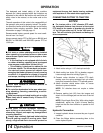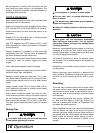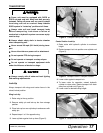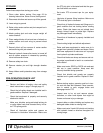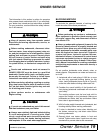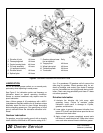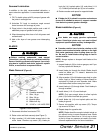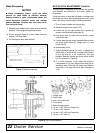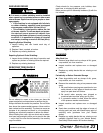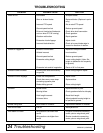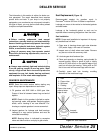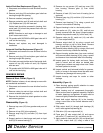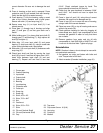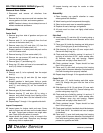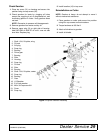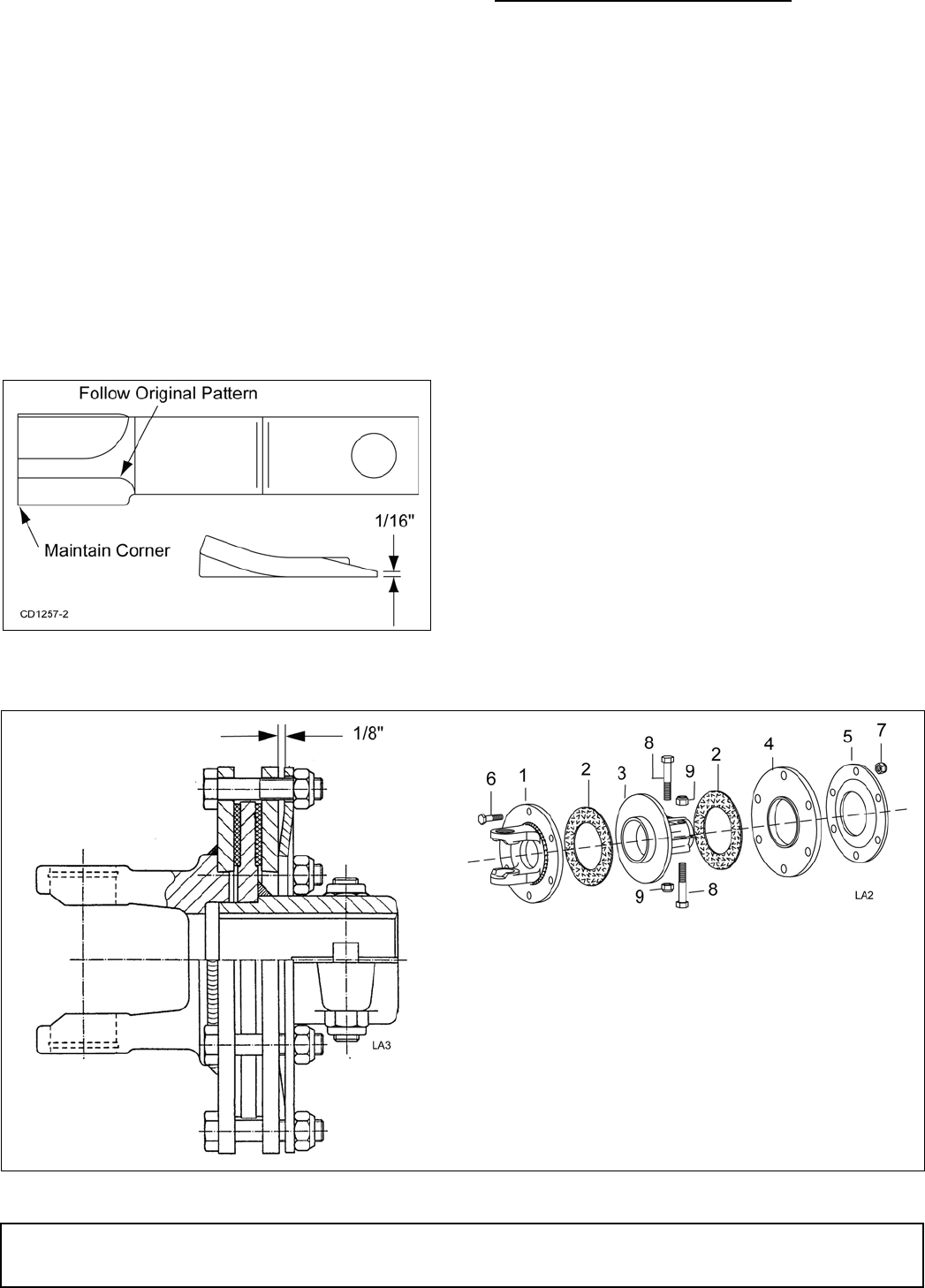
22 Owner Service
MAN0707 (5/30/2008)
Blade Sharpening
NOTICE
■ When sharpening blades, grind the same
amount on each blade to maintain balance.
Replace blades in pairs. Unbalanced blades will
cause excessive vibration, which can damage
gearbox bearings. Vibration may also cause struc-
tural cracks to cutter.
1. Sharpen both blades at the same time to maintain
balance. Follow original sharpening pattern.
2. Do not sharpen blade to a razor edge—leave at
least a 1/16" blunt edge.
3. Do not sharpen back side of blade.
Figure 7. Blade Sharpening
SLIP CLUTCH ADJUSTMENT (FIGURE 8)
The slip clutch is designed to slip so that the gearbox
and driveline are protected if the cutter strikes an
obstruction.
A new slip clutch or one that has been in storage over
the winter may seize. Before operating the cutter, make
sure it will slip by performing the following operation:
1. Turn off tractor engine and remove key.
2. Remove driveline from tractor PTO.
3. Loosen six 10 mm cap screws (6) to remove all
tension from Belleville spring plate (5).
4. Hold clutch hub (3) solid and turn shaft to make
sure clutch slips.
5. If clutch does not slip freely, disassemble and clean
the thrust plate faces (4), flange yoke (1), and
clutch hub (3).
6. Reassemble clutch.
7. Tighten Belleville spring (5) until it is against the
thrust plate (4) of the clutch, and then back off each
of the six nuts by 2 full revolutions. The gap
between Belleville spring and thrust plate should
be 1/8" as shown in Figure 8.
8. If a clutch continues to slip when the spring is
compressed to 1/8" gap, check friction discs (2) for
excessive wear. Discs are 1/8" when new. Replace
discs after 1/16" wear. Minimum disc thickness is
1/16".
Figure 8. Slip Clutch Assembly
1. Flange yoke
2. Friction disc
3. Hub 1-3/8 round bore
4. Thrust plate
5. Belleville spring plate
6. 10 mm x 1.5P x 50 mm Cap screw
7. 10 mm x 1.5P Hex nut
8. 12 mm x 1.5P x 65 mm Cap screw
9. 12 mm x 1.5P Hex nut



